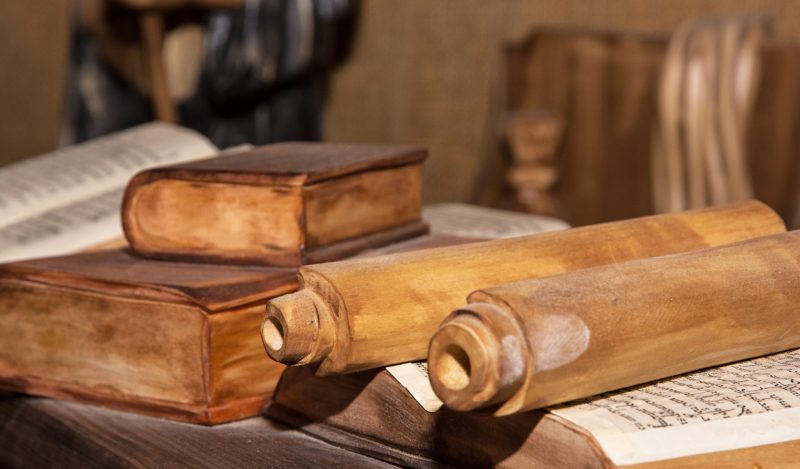As a student in Jon Meacham’s class at Vanderbilt University in 2016, I witnessed how sycophancy can delude bright minds. His lectures on the presidential campaigns of the 19th century were brilliant, but academia and MSNBC green rooms left him utterly detached from the present day. Eight years later, the acclaimed historian has proven himself to be nothing more than a glib spokesman for the praetorian guard.
We met for class on November 8, 2016, and Mr. Meacham told us that the next day we could expect the historic first of a female president-elect. Of course, he was wrong, but like so many of his ilk, he offered no time for self-reflection.
Instead of retreating to the past in his role as a historian, he increasingly dove into present-day politics. In the process, he proved himself to be a charlatan, willing and eager to imbibe the madness that threatens the Constitution he so glibly purports to cherish.
In September 2020, he defended Covid lockdowns as “scientifically uncontroversial public health measures.” And he attacked those who protested their grave intrusion into civil liberties as engaging in “incendiary hyperbole designed to feed a sense of paranoia.”
He went on to call the 2020 election “as important an election as 1864,” comparing Joe Biden to Abraham Lincoln in the process. Behind the scenes, he was Biden’s scriptwriter. He drafted President Biden’s remarks at the 2020 Democratic National Convention, his victory address in November 2020, and various States of the Union.
Meacham had unfettered access to the President, which undoubtedly revealed Biden’s cognitive decline. But instead of apologizing for the cover-up that he and so many of his colleagues willingly participated in, today he launched the hagiography of Joe Biden in the New York Times.
“The Company of George Washington”
Meacham referred to Biden’s decision to withdraw from the election as “one of the most remarkable acts of leadership in our history, an act of self-sacrifice that places him in the company of George Washington.”
Predictably, Meacham made no mention of Biden’s failure to appear in public upon the announcement, nor did he include the salient fact that the President’s announcement came after weeks of refusal from him, his staff, and his family. His resignation only appeared after the donor class and the DNC turned on him and when the prospect of reelection disappeared.
President Washington’s “self-sacrifice” was remarkable because he undoubtedly would have won a third term had he sought it. Mr. Biden, to the contrary, had no path to victory as his polls in every swing state plummeted after his disastrous debate performance. To the end, he was a slave to the powerful, an individual subservient to the hegemon, and he could not disobey its orders.
Meacham’s praise does not stop with the American Cincinnatus. He refers to Biden as “a defender of the Constitution and a public servant of honor and grace” who “has met challenges all too similar to those Abraham Lincoln faced.”
Such an absurd comparison demands a reevaluation of all of Mr. Meacham’s work. This “defender of the Constitution” used allies in Big Tech to stifle the free speech rights of his opponents, bragged about defying the Supreme Court to bribe his constituents with student loan forgiveness, launched a political persecution of his chief rival, depleted our strategic petroleum reserve to historic lows, weaponized OSHA to promote Covid vaccine mandates, deceived the public regarding the sanguinary war in Ukraine, and allowed millions of third world men to enter the country illegally only to enjoy hundreds of billions of dollars in taxpayer benefits.
But Mr. Meacham, like so many in his class, can justify all of this because Joe Biden defeated Donald Trump, whom he has pathologically hated since that Vanderbilt classroom eight years ago. Meacham writes that Biden “staved off an authoritarian threat at home,” adding “history and fate brought him to the pinnacle in a late season in his life.”
Mr. Meacham then offers the Gray Lady’s first eulogy of the Biden Administration:
Character, as the Greeks first taught us, is destiny, and Mr. Biden’s character is both a mirror and a maker of his nation’s. Like Franklin Roosevelt and Ronald Reagan, he is optimistic, resilient and kind, a steward of American greatness, a lover of the great game of politics and, at heart, a hopeless romantic about the country that has given him so much.
For the country to come to terms with the ruin this Administration has created, this hagiography cannot stand. If Mr. Meacham wants to discuss character and the “great game of politics,” then Mr. Biden should be remembered as a power-hungry fool who tried to lie his way to the White House in 1987, as a servant of power since his days as the “Senator from MNBA” when he pushed corporate legislation on behalf of his son’s employer, and as a failed steward of American diplomacy who championed failed foreign interventions and enriched his family through international corruption.
If character is destiny, then hubris defines the five-decade arc of Joe Biden’s career. “Like the Greeks first taught us,” as Meacham says, Biden crashed like Icarus. He was a tool for the powerful with disdain for any obstacles – whether they be written law or political opponents – that hindered his ascendance. That arrogance blinded him to even his natural constraints, culminating in his fall from power as soon as he was no longer politically useful.
Join the conversation:


Published under a Creative Commons Attribution 4.0 International License
For reprints, please set the canonical link back to the original Brownstone Institute Article and Author.









